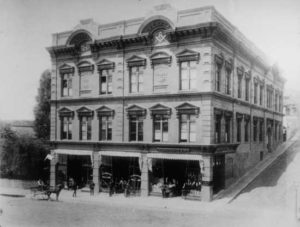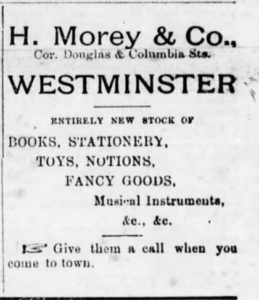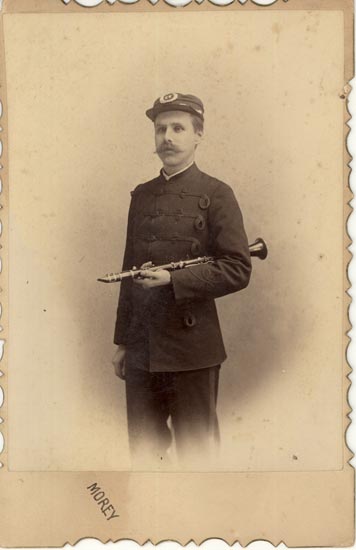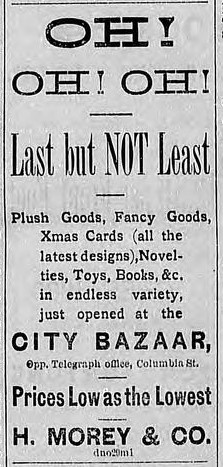After a few diversions to show how 19th-century bookstores took part in the festive holiday season, I’ll now pick up the story of Henry Morey in New Westminster.
Following the fire that burned out his store on Columbia Street in 1891, Henry Morey steadily rebuilt his book and stationery business. In 1895, he expanded into job printing when he bought out printer Frank Noot (1), and a year later, the firm moved to the Armstrong-Young block at 705 Columbia (2).
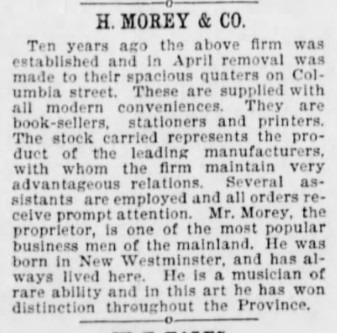
Over the next ten years, Morey & Co. ads hint at multiple disruptions, with the firm moving at least half a dozen times. Nevertheless, the company seemed to prosper. A glowing article in the Daily News in 1910 called Morey & Co. “without doubt today the most up-to-date in the Royal City…Here are to be found the requirements of the school child, the parent, the business and professional man, the student or the divine.”
“But the firm of Morey & Co. do not only look after the serious side of life for their large clientele,” the article continued; “pleasure also enters into their stock, as is shown by the large stock of toys and sporting goods they handle” (3).
“But the firm of Morey & Co. do not only look after the serious side of life for their large clientele; pleasure also enters into their stock.”
“A great deal of the credit for the continued growth and expansion of the concern is due to its founder…who has through the years steadily adhered to high standards of business integrity, has given largely of his time and energies to the expansion of the enterprise, has studied modern merchandising and has applied his knowledge in a practical and constructive way,” praised the editors of a 1914 biographical dictionary (4).
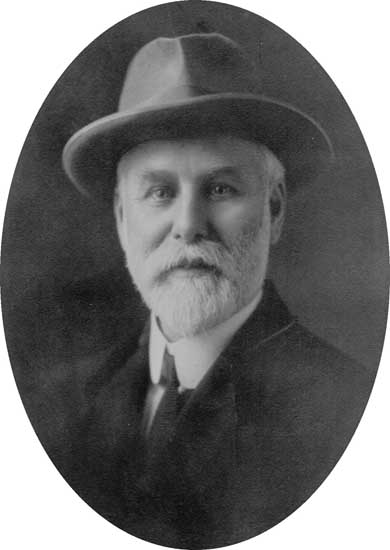
In 1924, Morey sold his business to Alan and David Nixon (5). In retirement, Morey built a “splendid home and developed an outstanding garden” in South Westminster (6). He died, unexpectedly, at the age of seventy-four in 1936, and is buried in Fraser Cemetery.
As for the business he had founded in 1886, it continued on as Nixon’s Book Store—first under the Nixon family’s management and then under new owners Bob Hall and Ernie Ramsey—until closing in 1994 (7).
Notes
(1) American Stationer (October 17, 1895): 722.
(2) Vancouver Daily World (April 21, 1896): 5.
(3) “H. Morey & CO.,” Daily News (October 4, 1910): 20.
(4) British Columbia from the Earliest Times to the Present: Biographical vol. IV (Vancouver, Portland, San Francisco, Chicago: S.J. Clarke Publishing Company, 1914), 504.
(5) Henry Morey obituary, Vancouver Sun (May 16, 1936): 1.
(6) Ibid.
(7) “Closing the Book,” Royal City Record/Now (June 29, 19940: 11.


